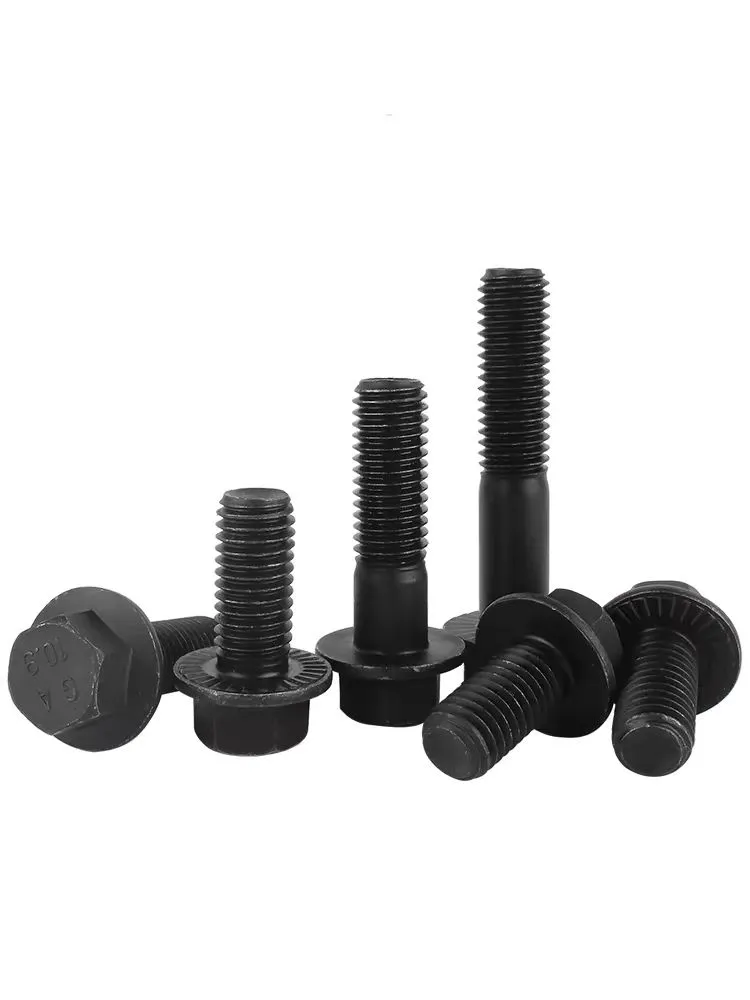

hdg stud bolt
Dec . 18, 2024 00:15 Back to list
hdg stud bolt
Understanding HDG Stud Bolts Applications and Benefits
HDG stud bolts, or hot-dip galvanized stud bolts, are an essential component in various industries, particularly those involving structural and construction applications. Their durability, corrosion resistance, and strength make them a favored choice for fastening and securing materials in challenging environments. This article explores the characteristics, applications, and advantages of HDG stud bolts.
What are HDG Stud Bolts?
Stud bolts are long cylindrical rods with threads on both ends, designed to be used with nuts to secure two or more objects together. The HDG in HDG stud bolts refers to the hot-dip galvanization process, where the bolts are submerged in molten zinc to create a protective coating. This coating significantly enhances the bolt's resistance to corrosion, a critical factor in ensuring long-term performance in various applications.
Corrosion Resistance
One of the standout features of HDG stud bolts is their superior corrosion resistance. The protective zinc coating forms a barrier against various corrosive elements such as moisture, chemicals, and salts. This quality makes HDG stud bolts particularly suitable for use in environments that are exposed to harsh weather conditions, such as coastal areas or industrial settings where chemical exposure is common. By utilizing HDG stud bolts, engineers and constructors can significantly extend the lifespan of their structures and reduce maintenance costs.
Applications of HDG Stud Bolts
HDG stud bolts are versatile and can be applied in various sectors, including
1. Construction These bolts are widely used in building construction to secure steel structures and heavy equipment. Their strength and reliability make them ideal for high-load applications.
2. Marine and Offshore Due to their corrosion resistance, HDG stud bolts are commonly used in marine applications, including shipbuilding and offshore platforms, where exposure to seawater is inevitable.
3. Transportation In the transportation sector, HDG stud bolts are used in bridges, highways, and railways, providing secure connections that must endure constant stress and environmental challenges.
hdg stud bolt

4. Energy The energy sector, particularly wind and solar energy installations, utilizes HDG stud bolts for securing components in wind turbines and solar panels, ensuring durability against the elements.
5. Manufacturing In various manufacturing processes, HDG stud bolts ensure the reliable assembly of machinery and infrastructure, providing structural integrity.
Advantages of Using HDG Stud Bolts
Incorporating HDG stud bolts into engineering projects offers several advantages
- Cost-Effective While the initial investment may be slightly higher than standard bolts, the long-term savings from reduced corrosion, replacement, and maintenance costs make HDG stud bolts a cost-effective choice.
- Environmental Resistance Their resistance to environmental factors makes them suitable for outdoor applications and locations with high humidity or saline conditions.
- Strength and Reliability HDG stud bolts maintain high tensile strength, ensuring dependable performance under various load conditions.
- Ease of Installation The standardized sizes and threading of HDG stud bolts allow for easy handling and installation, contributing to efficient project completion.
Conclusion
In summary, HDG stud bolts represent a crucial advancement in fastening technology, combining strength, durability, and corrosion resistance for a wide range of applications. Their use in construction, marine, transportation, energy, and manufacturing industries not only enhances safety and reliability but also protects investments against the elements. As industries continue to demand robust and resilient solutions, HDG stud bolts will undoubtedly maintain their position as a preferred choice for engineers and builders worldwide. By investing in high-quality HDG stud bolts, businesses can ensure the longevity and stability of their projects in an increasingly challenging environment.
Latest news
-
Hot Dip Galvanized Bolts-About LongZe|High Strength, Corrosion Resistance
NewsJul.30,2025
-
High-Strength Hot Dip Galvanized Bolts - Hebei Longze | Corrosion Resistance, Customization
NewsJul.30,2025
-
Hot Dip Galvanized Bolts-Hebei Longze|Corrosion Resistance&High Strength
NewsJul.30,2025
-
High-Strength Hot-Dip Galvanized Bolts-Hebei Longze|Corrosion Resistance&High Strength
NewsJul.30,2025
-
Hot Dip Galvanized Bolts-Hebei Longze|Corrosion Resistance&High Strength
NewsJul.30,2025
-
Hot Dip Galvanized Bolts - Hebei Longze | Corrosion Resistance, High Strength
NewsJul.30,2025

